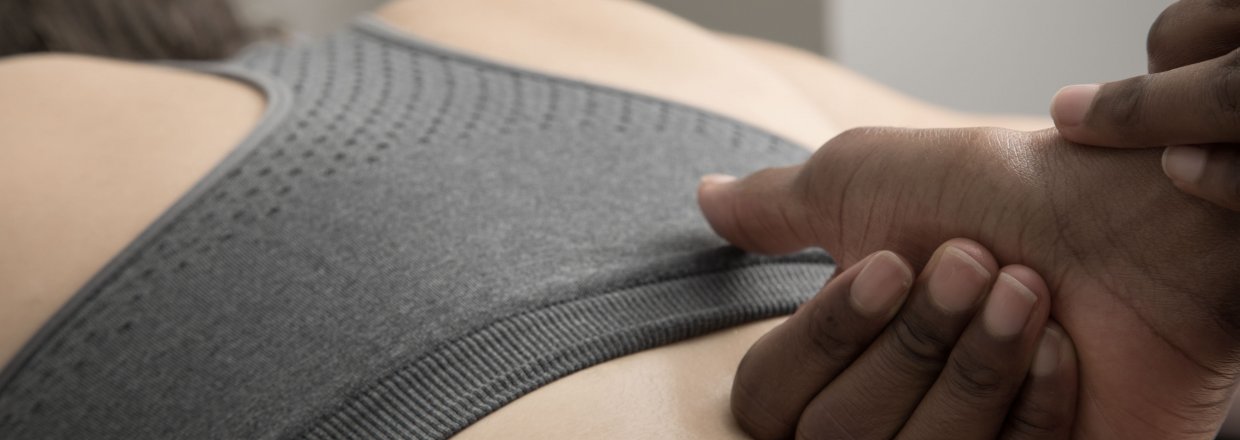Symptoms
If you have lower back pain you may experience:
- Dull aching pain
- Pain that travels to your buttocks, hips or legs
- Discomfort when sitting for long periods
- Pain that feels better when you change positions
- Difficulty sleeping and pain when you wake-up
If you are suffering with changes to your bladder and bowel function, this could be a sign of something more serious and we recommend that you see your GP right away.
Causes
Your lower back supports the weight of your torso day to day and provides mobility to your whole body.
The spine is a complex area and although back pain is common, it is rarely caused by anything serious. Pain can be due to the strain of muscles or ligaments, often overtime and due to bad posture.
Often it is not possible to identify one cause of lower back pain, but the following can be contributing factors:
- Poor posture
- Pregnancy
- Spine and muscle imbalance
- Being overweight or obese
- Wear and tear in old age
- Repetitive strain – sitting for long periods or lifting
- Trauma or injury to the area – such as a slipped disc or trapped nerve
- Conditions that affect inflammation, such as arthritis
- Biomechanics – how your body functions as a whole and distributes weight
Treatment with us
Step by step we can help you to feel better.
Your physiotherapist will discuss a treatment plan with you, which is likely to include:
- Soft-tissue massage
- Joint mobilisation
- Exercise therapy
- Heat and ice to relieve pain and swelling
- Moving regularly and avoiding long periods of inactivity
- Stretching exercises to relieve tension
- Biomechanics & orthotics
- Lifestyle advice
Advice from our experts: Top physio tips for maintaining a healthy lower back
